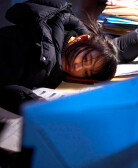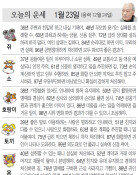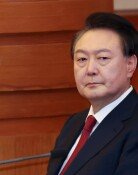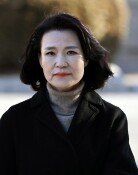[Editorial] Using Economics to Reduce Koreas Income Gap
[Editorial] Using Economics to Reduce Koreas Income Gap
Posted December. 22, 2005 03:02,
The government and the ruling Uri Party have announced they will impose heavier taxes on the high-income tax bracket in a bid to narrow the gap between the rich and the poor in 2006.
Regarding their decision, they cited the projection that the public would continue to suffer due to the gap between the rich and the poor, while the economic growth rate would reach around five percent again next year.
Recently, Finance-Economy Minister Han Duk-soo noted, To some extent, the reason why the public has not been feeling like the economy has recovered is the widening gap between the haves and the have-nots, while explaining the 2006 direction of Korean economic management. In doing so, he meant to put the focus of economic policies that center on bridging the chasm between the rich and the poor, strengthening the economic recovery process and expanding growth potential. Prime Minister Lee Hae-chan said last Sunday, The big challenge remaining is about social welfare including the disparity between the rich and the poor, in a government-ruling party workshop celebrating the third anniversary of President Roh Moo-hyuns inauguration. His remark can be understood in the same context as well.
True, the relative gap between the rich and the poor has widened since the financial crisis. Of particular note is the disruption of the middle class and the aggravating poverty resulting from the collapse of SMEs and the self-employed that have been mired in low-growth for three consecutive years under the incumbent administration. In its wake, an increasing number of children have been abandoned by dysfunctional families, and the elderly, who are financially vulnerable, have been marginalized from society. There was even a story of a boy who died in a fire caused by candlelight in his house where electricity had been cut off. Indeed, strengthening Koreas social safety net to reduce the number of the extremely poor is an urgent national task.
Still, a Robin Hood idea that attributes the income gap to the top two percent of those well-to-do and argues for imposing heavy taxes on them to seek justice may be an effective political incitement tool but is likely to worsen, not better, the chasm.
Companies are getting richer while the general public is not, said Park Young-Sun, an Uri Party member, in the workshop, and continued, The concentration of wealth in the rich is attributable to the governments negligence of wealth distribution. Lawmaker Rhee Mok-hee stated, There should be a general consensus among the public to establish tax items and to intensify progressive taxation in the mid-to-long term in order to narrow the wealth gap and seek hand-in-hand growth. Their remarks show where the government and ruling partys idea to bombard the top two percent of those rich with sophisticated, heavier taxes originated.
In this globalized world, nations, companies and individuals who get ahead in the global competition understandably take in more wealth. Profits Samsung and Hyundai earned are not the result of exploiting the domestic poor. They embody the rewards those leading companies received from international consumers for their price competitiveness and quality products.
Levying heavy taxes on successful companies and the rich as if to punish them undermines investment, which goes against the move to create a business and investment-friendly environment. This is because it would only force local companies out of the domestic market, not to mention fail to attract foreign capital. It would also aggravate the economic situation of the poor by deterring their determination to be financially independent as well as cut the number of jobs and discourage the will to work. In a nutshell, resolving the wealth disparity in a way that attacks the rich will only cause downward wealth equalization.
The government and the ruling party should admit that politicking and policies that emphasize wealth distribution instead of encouraging growth would widen, not narrow, the gap between the haves and the have-nots. This truth has been well illustrated throughout world history. It was also practically proved over the past three years under the current government. The Roh administration has made excuses for failing to boost the economy at the right time, saying, We do not use artificial prop-up measures. Yet, the reality is that the middle-income class is becoming a low-income class and low-income earners are becoming the poor.
To be sure, there is a need for a policy that gives a second chance to companies and individuals who lose. However, a reckless policy to increase taxes would do more harm than good to the overall economy because it would weaken investment and consumption of tax-burdened companies and individuals. Herein lies the reason why many countries around the world pursue small yet efficient governments to maximize the spending effects with small taxes.
The government should now work harder to create a new job-creating structure that would replace the traditional government-led economic development system. It should not allow the economy next year to continue to be ensnared in low growth by upholding its wealth distribution principle at a time like this when the national economy is growing. It should invest its energy in eradicating unreasonable institutions and regulations that hinder investment and growth.
Deputy Prime Minister Hans argument for more education and job trainings for workers would help resolve the wealth disparity. However, fundamental reform of the current supply-based training system that only increases unemployment is urgent. More than anything else, the government should reduce the wage gap between the regular and non-regular workers and make the labor market more flexible to enhance the productivity of the economy as a whole.







